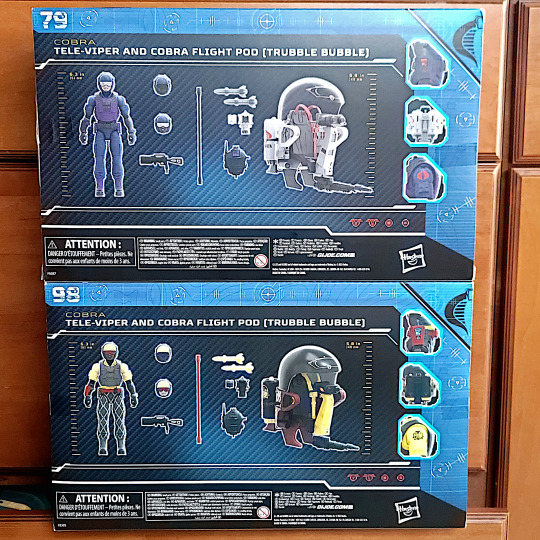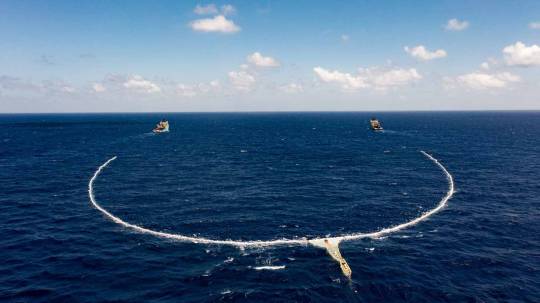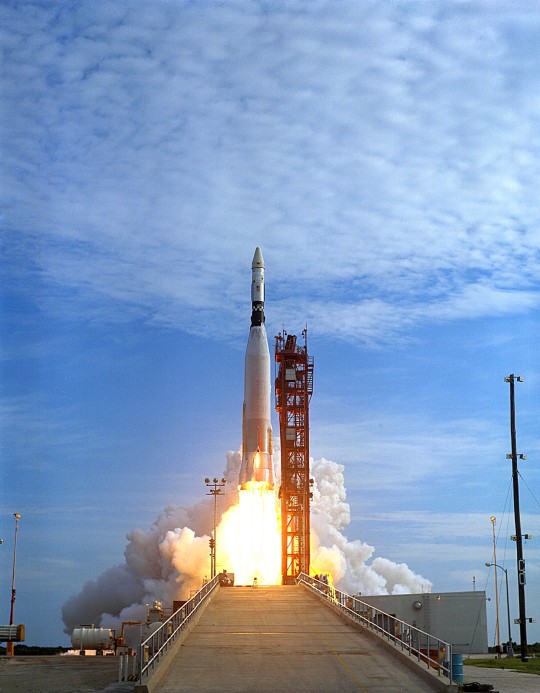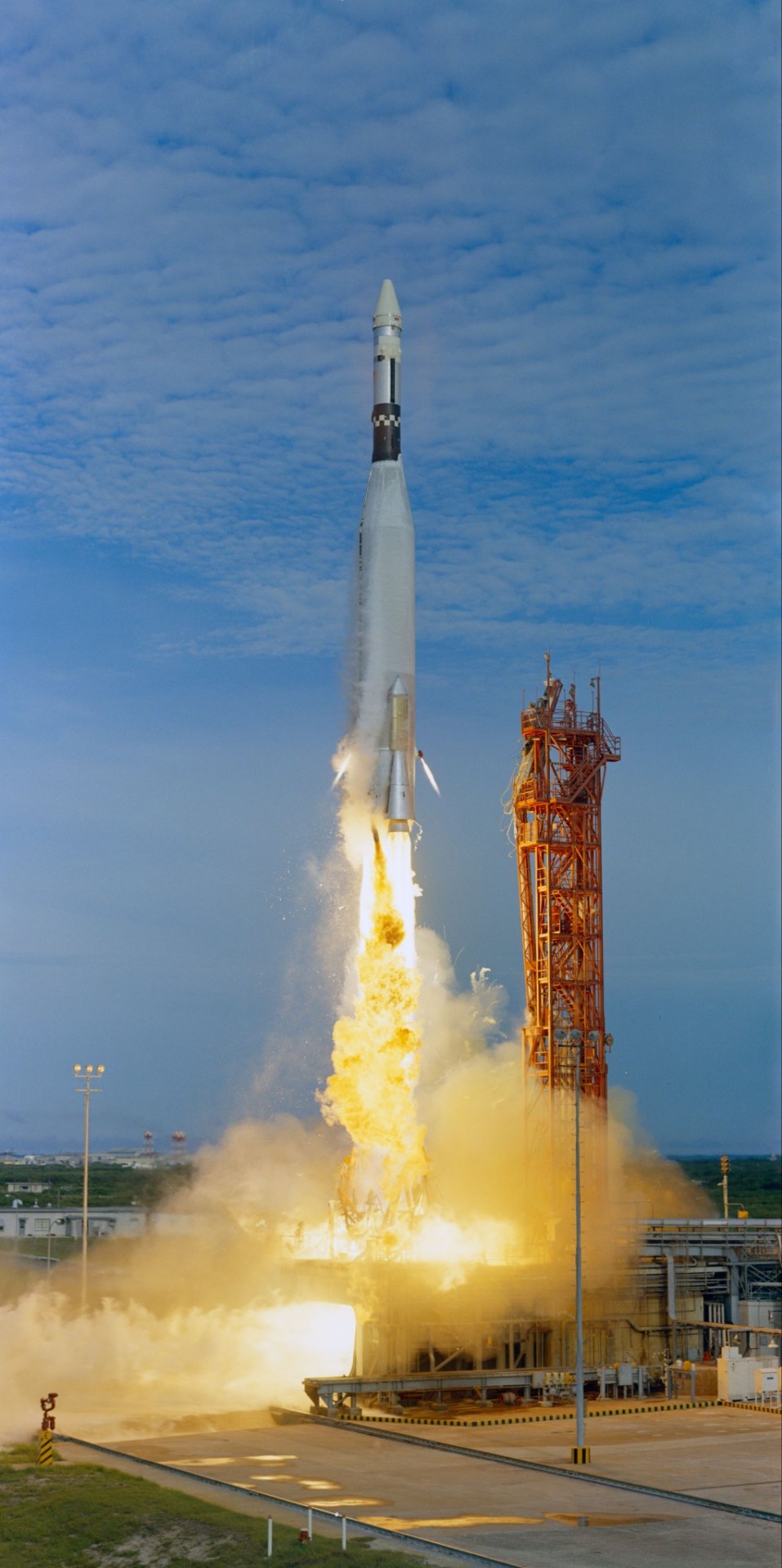#Vehicle Targeting
Explore tagged Tumblr posts
Text
Thermal Imaging Market to be Worth $7.8 Billion by 2032
Meticulous Research®—a leading global market research company, published a research report titled, ‘Thermal Imaging Market by Type (Handheld Cameras, Fixed Cameras, Scopes, Modules), Technology (Cooled, Uncooled), Wavelength (SWIR, MWIR, LWIR), Application (Security & Surveillance) - Global Forecast to 2032’
According to the latest publication from Meticulous Research®, the thermal imaging market is expected to reach $7.8 billion by 2032, at a CAGR of 7.2% from 2025 to 2032. This market’s growth is attributed to several factors, such as the growing need for surveillance & security solutions and the increasing utilization of thermal imaging in manufacturing and industrial settings. Additionally, the surge in demand for thermal imaging in healthcare, growing military & defense expenditure in advanced surveillance technologies, and rising unmanned aerial vehicles (UAVs) are expected to create market growth opportunities. However, the availability of alternative imaging technologies, such as visible light cameras & radar systems, may restrain the growth of this market.
On the other hand, the high cost of thermal imaging devices is a major challenge for the players operating in this market.
The global thermal imaging market is segmented by type, technology, wavelength, and application. This study also evaluates end-user industry competitors and analyzes the market at the region/country level.
Download Sample Report Here @ https://www.meticulousresearch.com/download-sample-report/cp_id=5978
Based on type, the thermal imaging market is broadly segmented into handheld/portable cameras, fixed/mounted cameras, scopes & eyewear, and modules. In 2025, the portable or handheld cameras segment is expected to account for the largest share, over 55.0%. This segment's large market share is attributed to its features, such as ease of use and portability, and the growing use of portable or handheld cameras for field inspection & maintenance and emergency and rescue operations.
However, the fixed/mounted cameras segment is expected to register the highest CAGR during the forecast period. This segment’s growth is driven by its ability to provide continuous, high-precision, real-time monitoring of critical infrastructure without the need for manual intervention, to withstand harsh environmental conditions, and its increasing demand for fixed thermal cameras for integrating with automated security and monitoring systems.
Based on technology, the thermal imaging market is segmented into cooled thermal imaging and uncooled thermal imaging. In 2025, the cooled thermal imaging segment is expected to account for a larger share of over 64.0% of the thermal imaging market. This segment’s large market share is due to its sensitivity, high accuracy, long-range detection, and image resolution, which allows for the detection of minute temperature differences and the capture of detailed thermal images and increasing use of cooled thermal imaging for extreme environmental conditions, such as high-temperature industrial environments or cold regions.
However, the uncooled thermal imaging segment is expected to register the highest CAGR during the forecast period. This segment’s growth is driven by its features, including cost-effectiveness, ease of maintenance, reduced operational costs, and growing demand for uncooled thermal imaging products in applications such as building diagnostics, wildlife monitoring, emergency response, law enforcement, and temporary monitoring needs in various scenarios.
Based on wavelength, the thermal imaging market is segmented into shortwave infrared (SWIR), mid-wave infrared (MWIR), and longwave infrared (LWIR). In 2025, the LWIR segment is expected to account for the largest share of over 49.0% of the thermal imaging market. The growing use of LWIR cameras in environmental monitoring, advanced driver assistance systems (ADAS), security and surveillance, and the need to detect thermal radiation emitted by objects across various industries are the main causes of this segment's large market share. Other factors include the segment's ability to provide non-contact temperature measurement for monitoring high-temperature processes and equipment, and its cost-effectiveness in comparison to MWIR and SWIR systems.
However, the SWIR segment is expected to register the highest CAGR during the forecast period. This growth is driven by its superior image contrast and detail, enhanced capability to ensure clear visibility in challenging environmental conditions, including smoke, fog, and haze, and growing demand for SWIR technology in medical diagnostics for non-invasive imaging.
Based on application, the thermal imaging market is segmented into aerospace & defense, security & surveillance, building & construction, personal vision systems, healthcare & medical diagnostics, energy & utilities, agriculture, research & development, search & rescue operations, marine systems, and other applications. In 2025, the security & surveillance segment is expected to account for the largest share of over 41.0% of the thermal imaging market. The growing need for improved surveillance capabilities, such as visibility in low light and obscured conditions, the growing use of thermal imaging to improve perimeter security for securing sensitive facilities and high-profile events, and the growing integration of thermal cameras into smart security systems to the overall effectiveness of security measures are all factors contributing to this segment's large market share.
However, the healthcare & medical diagnostics segment is expected to register the highest CAGR during the forecast period. This growth is being driven by an increase in demand for thermal imaging technology owing to its non-invasive nature for early disease detection by identifying abnormal heat patterns associated with conditions such as breast cancer, vascular disorders, and inflammation, and an increase in the use of thermal imaging for fever screening in public areas and in veterinary medicine to diagnose and monitor health conditions in animals.
Based on geography, the thermal imaging market is segmented into North America, Europe, Asia-Pacific, Latin America, and the Middle East & Africa. In 2025, North America is expected to account for the largest share of over 36.0% of the thermal imaging market.
North America's significant market share can be attributed to several key factors, including rising concerns over terrorism, crime, and public safety, increasing deployment of thermal imaging in large-scale surveillance applications such as city-wide monitoring or border control, increasing technological advancements in thermal imaging, high investments in advanced technologies for military and defense applications, and growing focus on advancing medical tools for non-invasive diagnostics and early disease detection.
Moreover, Asia-Pacific is expected to register the highest CAGR of over 8.5% during the forecast period.
Key Players:
The key players operating in the thermal imaging market are Teledyne FLIR LLC (U.S.) (a subsidiary of Teledyne Technologies Incorporated (U.S.)), Fluke Corporation (U.S.), L3Harris Technologies, Inc. (U.S.), Leonardo S.p.A. (Italy), Axis Communications AB (Sweden), BAE Systems plc (U.K.), RTX Corporation (U.S.), Lockheed Martin Corporation (U.S.), Testo SE & Co. KGaA (Germany), Thales Group (France), Seek Thermal, Inc. (U.S.), Exosens (France), Honeywell International Inc. (U.S.), Trijicon, Inc. (U.S.), Cantronic Systems, Inc. (U.S.), Safran Group (France), Zhejiang Dali Technology Co., Ltd. (China), HT Italia S.r.l. (Italy), Thermoteknix Systems Ltd. (U.K.), and Bullard (U.S.).
Complete Report Here : https://www.meticulousresearch.com/product/thermal-imaging-market-5978
Key questions answered in the report-
Which are the high-growth market segments based on type, technology, wavelength, application, and geography?
What was the historical market for the thermal imaging market?
What are the market forecasts and estimates for the period 2025–2032?
What are the major drivers, restraints, opportunities, and challenges in the thermal imaging market?
Who are the major players, and what shares do they hold in the thermal imaging market?
What is the competitive landscape in the thermal imaging market?
What are the recent developments in the thermal imaging market?
What do the major players adopt the different strategies in the thermal imaging market?
What are the key geographic trends, and which are the high-growth countries?
Who are the local emerging players in the global thermal imaging market, and how do they compete with the other players?
Contact Us: Meticulous Research® Email- [email protected] Contact Sales- +1-646-781-8004 Connect with us on LinkedIn- https://www.linkedin.com/company/meticulous-research
#Thermal Imaging Market#Thermal Image#Night Vision#Thermogram#Security & Surveillance#Monitoring & Inspection#Fire Fighting#Personal Vision Systems#Vehicle Targeting#Counter-Unmanned Aircraft Systems (C-UAS)#Maritime & Coastal Surveillance#Search & Rescue Operation#Space Exploration Thermal Mapping#Handheld/Portable Cameras#Fixed/Mounted Cameras#Thermal Scopes#Military Targeting Systems#Perimeter Surveillance
0 notes
Text


Double exposure photo of the Gemini-Titan VIII (SC8/62-12563) and Atlas-Agena rocket launch.
Date: March 16, 1966
Science Photo Library: C007/4354
NASA ID: 66-H-113
#GT-8#GT-VIII#Gemini 8#Gemini VIII#SC8#NASA#Gemini Program#Project Gemini#Gemini Titan#rocket#Titan II#Titan II GLV#Gemini-Agena Target Vehicle#Agena Target Docking Vehicle#Agena Target Vehicle#ATV#Agena-D#GATV-5003#SM-65 Atlas#Atlas#LC-14#LC-19#Cape Canaveral#Kennedy Space Center#Florida#launch#March#1966#my post
167 notes
·
View notes
Text
Petsite murdersim... Murdersim starring petsite pets....
#dama speaks#Weds u got me thinking#We have a whole den of like Murdercult in our FR clan#Player is some Beastclan sort who's unfortunately targeted by them and each and every one of the 11 is unique in their methods#This is likely mostly a Spearwa vehicle because he's the fucking guy in here
11 notes
·
View notes
Text
Just a reminder, for no particular reason at all, that most things going on in small towns aren’t being reported.
#they are targeting small towns#so many unmarked vehicles#but as the local-ish policewoman put it;#if we report it that means we are paying attention#that we make it known that we know more than we’re letting on#that we are capable of lying and hiding#and we know how to hunt#mustn’t let them think we’re a threat#that nothings going on
4 notes
·
View notes
Text
shout out to the middle aged men making realistic, RP heavy simulator game videos. i enjoy watching you drive the silly little trains :)
#.txt#listen. am i the target audience? statistically: no.#would they invent fun new slurs to call me? quite possibly.#but i am a sucker for simulators and these lads have the 40395 different hyper specific controllers and £3k worth of dlc#(staples of the simulator genre ofc ofc)#so like. yay c:#still thinking about the bloke who played modded farm sim to make it british#and edited in a key jingle noise when he entered a vehicle#man wholesale walked up to a nonfunctional parking metre to pretend to pay a nonexistent parking permit.#like they are Committed to this bit by GOD and it is SO good.#they are cringe but they are Free and they are having fun editing in their own realistic but non-branded advertisements#it's so funny. i love them.
3 notes
·
View notes
Text
The IOF withdraws a disabled military vehicle from #Tubas after it the resistance targeted it with an explosive device.
#The IOF withdraws a disabled military vehicle from Tubas after it the resistance targeted it with an explosive device.#iof terrorism#iof war crimes#fuck the iof#iof#idf terrorists#fuck the idf#idf#free palestine#freepalastine🇵🇸#videos#video#palestine#gazaunderattack#free gaza#gaza genocide#gaza strip#gaza#save rafah#all eyes on rafah#free rafah#rafah under attack#rafah#ausgov#politas#auspol#tasgov#taspol#australia#fuck neoliberals
6 notes
·
View notes
Text
Noticing an imminent problem in the new edition of weapons that are intended to be good for tanks and APCs having the anti-vehicle keyword which unfortunately does not apply to the Tyranid equivalent, such as Tervigons or a rampaging Carnifex D:
#my stuff#wh40k#warhammer 40k#admech codex has a lot of anti-vehicle from arc and grav weapons#but no anti-monster#so things that can crush a Leman Russ will absolutely piss out targeting a Carnifex.#Fear.jpg
30 notes
·
View notes
Text

The Nitro Soda Skimmer is the Nitro counterpart of the Soda Skimmer in Skylanders: SuperChargers.
#Skylanders#Skylanders SuperChargers#Skylanders SuperChargers Racing#Magic Vehicles#Vehicles#Sea Vehicles#Nitro Vehicles#Alt Deco Vehicles#Target Exclusive Skylanders#Soda Skimmer#Nitro Soda Skimmer
2 notes
·
View notes
Text


Tele-Viper & Cobra Flight Pod [Trubble Bubble] - G.I.Joe Classified - Hasbro
Python Patrol Tele-Viper & Cobra Flight Pod [Trubble Bubble] - Target Exclusive - G.I.Joe Classified - Hasbro
#G.I. Joe#Tele-Viper#python patrol#trubble bubble#gijoe#action figures#hasbro#vehicle#motorcycle#Cobra Flight Pod#Target#exclusive#acquisitions
2 notes
·
View notes
Text

"An Agena Target Vehicle atop its Atlas Launch vehicle is launched from the Kennedy Space Center (KSC) Launch Complex 14 at 10:15 am., May 17, 1966. The Agena was intended as a rendezvous and docking vehicle for the Gemini-9 spacecraft. However, since the Agena failed to achieve orbit, the Gemini-9 mission was postponed."
Date: May 17, 1966
NASA ID: S66-34610
#Agena Target Vehicle#ATV#Agena#Atlas#rocket#launch#GT-9#GT-IX#Gemini 9#Gemini IX#GT-9A#GT-IX-A#Gemini 9A#Gemini IX-A#NASA#Gemini Program#Project Gemini#May#1966#LC-14#Cape Canaveral#Kennedy Space Center#Florida#my post
54 notes
·
View notes
Note
i don’t know if this is going to be a positive thing to hear or what but i am obsessed with your worlds worst target odyssey and i hope you continue sharing its all insane and incredible. have a good day and stuff
well see the thing is i quit like 4 months ago. so there’s not really anything new to share and there won’t be until i move back to california and pay that beast a visit to see if it’s still standing. but it’s all tagged with “#my job wrapped” if you’re feeling so inclined to take a horrible journey
#my apologies if you knew that already but if not basically the story is:#i worked there from august 2021 - february 2023. 18 months exactly to the day#and long story short i finally quit because my favorite lead left#because his husband got a promotion that meant they were moving to florida(the target in question is in los angeles)#and i was like literally take this job and shove it i ain’t working here no more#oh yeah and i had tried to get promoted just for the pay raise because i was trying to move out of my shithole apartment#but they couldn’t promote me because they already promoted too many people so they were basically keeping me on the back burner#until someone could be transferred and/or promoted out of the store#and there was like. no timeline for any of this shit. no real job description for this position they created for me that they could give me#and the idea of potentially having to stay in that apartment for 6 more months while i found a different job made me soooo mad#that i literally just put in my notice & came back to south carolina at the beginning of april so i could spend the summer with my hounds#and now i’m unemployed by choice until i go back to california. like a freak lol#but it’s like. i have a nice little chunk of savings i’d much rather spend my time & energy on things that matter#like WORKING OUT and REFAMILIARIZING MYSELF WITH THE ACT OF OPERATING A VEHICLE#which btw i couldn’t do at my shithole apartment because there was no parking#soooooo uh. Yeah!#oh wait you know what let me add the tag —>#my job wrapped
5 notes
·
View notes
Text
FISKER DELIVERS FIRST 22 FISKER OCEAN SUVS, Establishing Presence in Competitive EV Market
Fisker Inc. achieves a major milestone by delivering the highly anticipated Fisker Ocean SUV to customers in the United States. Explore the groundbreaking features, sustainability, and investment potential of Fisker in the rapidly growing electric vehicle sector

Fisker Ocean SUV:
Innovation and Unmatched Features: The Fisker Ocean SUV represents a groundbreaking leap in automotive innovation. Designed to offer a sustainable and luxurious driving experience, it is equipped with cutting-edge features and impressive performance capabilities. Boasting a class-leading range of up to 360 miles, it surpasses other electric SUVs in its category. The SUV's all-wheel drive system and dual-motor setup deliver exceptional power and acceleration, providing a thrilling driving experience that surpasses traditional internal combustion
Read More
Other Topics Read:
10 Small Investment Ideas: Building Wealth
Stocks on Wall Street Show Resilience
South Korea Retains Position in MSCI Emerging Markets Index
Mastering the 5 EMA: A Powerful Indicator for Analyzing Price Trends
#Fisker #ElectricVehicles #Sustainability #Innovation #CustomerSatisfaction #InvestmentOpportunity #FuturePlans #Expansion #EVMarket
#: Fisker#electric vehicle manufacturer#Fisker Ocean SUV#innovation#sustainability#customer satisfaction#investment opportunity#strategic partnerships#global expansion#leadership team#market conditions#stock performance#Fisker Inc. achieves significant milestone by delivering the highly anticipated Fisker Ocean SUV to customers in the United States#Fisker Ocean SUV: A groundbreaking leap in automotive innovation and sustainability#Fisker Ocean SUV surpasses competitors with its class-leading range of up to 360 miles#Positive customer feedback solidifies Fisker's reputation as a forward-thinking electric vehicle manufacturer#Fisker's commitment to sustainability and eco-friendly materials reduces carbon footprint#Investment opportunity in Fisker as demand for electric SUVs continues to rise#Strategic partnerships strengthen Fisker's position in the competitive electric vehicle market#Fisker's expansion plans include ramping up production capacity and targeting international markets#Fisker's success in delivering the first 22 Fisker Ocean SUVs showcases innovation#and customer satisfaction#Fisker presents an exciting investment opportunity in the rapidly growing electric vehicle sector
2 notes
·
View notes
Text
Good morning. This might be my last message from the city of Rafah. The occupation [Israel] is carrying out crazy fire. Violent belts. As you’re hearing, there are helicopters. Planes and gunfire from the vehicles. There’s a complete invasion of the city.
We don’t know what is going on in Rafah. The place that the occupation [Israel] claimed to be safe. This is happening all of a sudden; the people didn’t go out. They didn’t do anything. More than thirty targets were hit in just minutes. People were asleep. We woke up to the bombing, to the shooting from the helicopters. It was horrifying. Unacceptable. This might be my last message. Please relay it to the world.
— Hazem, journalist residing in Rafah; 02.11.2024
Rafah was Palestinians’ very last safe zone. There is quite literally nowhere else left to go. And now it’s being bombed with airstrike after airstrike.
49K notes
·
View notes
Text

When self-described “ocean custodian” Boyan Slat took the stage at TED 2025 in Vancouver this week, he showed viewers a reality many of us are already heartbreakingly familiar with: There is a lot of trash in the ocean.
“If we allow current trends to continue, the amount of plastic that’s entering the ocean is actually set to double by 2060,” Slat said in his TED Talk, which will be published online at a later date.
Plus, once plastic is in the ocean, it accumulates in “giant circular currents” called gyres, which Slat said operate a lot like the drain of the bathtub, meaning that plastic can enter these currents but cannot leave.
That’s how we get enormous build-ups like the Great Pacific Garbage Patch, a giant collection of plastic pollution in the ocean that is roughly twice the size of Texas.
As the founder and CEO of The Ocean Cleanup, Slat’s goal is to return our oceans to their original, clean state before 2040. To accomplish this, two things must be done.
First: Stop more plastic from entering the ocean. Second: Clean up the “legacy” pollution that is already out there and doesn’t go away by itself.
And Slat is well on his way.

Pictured: Kingston Harbour in Jamaica. Photo courtesy of The Ocean Cleanup Project
When Slat’s first TEDx Talk went viral in 2012, he was able to organize research teams to create the first-ever map of the Great Pacific Garbage Patch. From there, they created a technology to collect plastic from the most garbage-heavy areas in the ocean.
“We imagined a very long, u-shaped barrier … that would be pushed by wind and waves,” Slat explained in his Talk.
This barrier would act as a funnel to collect garbage and be emptied out for recycling.
But there was a problem.
“We took it out in the ocean, and deployed it, and it didn’t collect plastic,” Slat said, “which is a pretty important requirement for an ocean cleanup system.”
Soon after, this first system broke into two. But a few days later, his team was already back to the drawing board.
From here, they added vessels that would tow the system forward, allowing it to sweep a larger area and move more methodically through the water. Mesh attached to the barrier would gather plastic and guide it to a retention area, where it would be extracted and loaded onto a ship for sorting, processing, and recycling.
It worked.
“For 60 years, humanity had been putting plastic into the ocean, but from that day onwards, we were also taking it back out again,” Slat said, with a video of the technology in action playing on screen behind him.
To applause, he said: “It’s the most beautiful thing I’ve ever seen, honestly.”
Over the years, Ocean Cleanup has scaled up this cleanup barrier, now measuring almost 2.5 kilometers — or about 1.5 miles — in length. And it cleans up an area of the ocean the size of a football field every five seconds.

Pictured: The Ocean Cleanup's System 002 deployed in the Great Pacific Garbage Patch. Photo courtesy of The Ocean Cleanup
The system is designed to be safe for marine life, and once plastic is brought to land, it is recycled into new products, like sunglasses, accessories for electric vehicles, and even Coldplay’s latest vinyl record, according to Slat.
These products fund the continuation of the cleanup. The next step of the project is to use drones to target areas of the ocean that have the highest plastic concentration.
In September 2024, Ocean Cleanup predicted the Patch would be cleaned up within 10 years.
However, on April 8, Slat estimated “that this fleet of systems can clean up the Great Pacific Garbage Patch in as little as five years’ time.”
With ongoing support from MCS, a Netherlands-based Nokia company, Ocean Cleanup can quickly scale its reliable, real-time data and video communication to best target the problem.
It’s the largest ocean cleanup in history.
But what about the plastic pollution coming into the ocean through rivers across the world? Ocean Cleanup is working on that, too.
To study plastic pollution in other waterways, Ocean Cleanup attached AI cameras to bridges, measuring the flow of trash in dozens of rivers around the world, creating the first global model to predict where plastic is entering oceans.
“We discovered: Just 1% of the world’s rivers are responsible for about 80% of the plastic entering our oceans,” Slat said.
His team found that coastal cities in middle-income countries were primarily responsible, as people living in these areas have enough wealth to buy things packaged in plastic, but governments can’t afford robust waste management infrastructure.
Ocean Cleanup now tackles those 1% of rivers to capture the plastic before it reaches oceans.

Pictured: Interceptor 007 in Los Angeles. Photo courtesy of The Ocean Cleanup
“It’s not a replacement for the slow but important work that’s being done to fix a broken system upstream,” Slat said. “But we believe that tackling this 1% of rivers provides us with the only way to rapidly close the gap.”
To clean up plastic waste in rivers, Ocean Cleanup has implemented technology called “interceptors,” which include solar-powered trash collectors and mobile systems in eight countries worldwide.
In Guatemala, an interceptor captured 1.4 million kilograms (or over 3 million pounds) of trash in under two hours. Now, this kind of collection happens up to three times a week.
“All of that would have ended up in the sea,” Slat said.
Now, interceptors are being brought to 30 cities around the world, targeting waterways that bring the most trash into our oceans. GPS trackers also mimic the flow of the plastic to help strategically deploy the systems for the most impact.
“We can already stop up to one-third of all the plastic entering our oceans once these are deployed,” Slat said.
And as soon as he finished his Talk on the TED stage, Slat was told that TED’s Audacious Project would be funding the deployment of Ocean Cleanup’s efforts in those 30 cities as part of the organization’s next cohort of grantees.
While it is unclear how much support Ocean Cleanup will receive from the Audacious Project, Head of TED Chris Anderson told Slat: “We’re inspired. We’re determined in this community to raise the money you need to make that 30-city project happen.”
And Slat himself is determined to clean the oceans for good.
“For humanity to thrive, we need to be optimistic about the future,” Slat said, closing out his Talk.
“Once the oceans are clean again, it can be this example of how, through hard work and ingenuity, we can solve the big problems of our time.”
-via GoodGoodGood, April 9, 2025
#ocean#oceans#plastic#plastic pollution#ocean cleanup#ted talks#boyan slat#climate action#climate hope#hopepunk#pollution#environmental issues#environment#pacific ocean#rivers#marine life#good news#hope
8K notes
·
View notes
Text




"An Agena Target Docking Vehicle #11 atop its Atlas launch vehicle was launched from the Kennedy Space Center's Launch Complex 14 at 6:05 a.m. (EST). The Agena served as a rendezvous and docking vehicle for the Gemini-11 spacecraft."
Date: September 12, 1966
NASA ID: S66-50724, KSC-66PC-0261, KSC-66C-7697, S66-50784
#Gemini-Agena Target Vehicle#Agena Target Docking Vehicle#Agena Target Vehicle#ATV#Agena-D#GATV-5006#SM-65 Atlas#Atlas#Rocket#LC-14#Cape Canaveral#Kennedy Space Center#Florida#September#1966#launch#my post
99 notes
·
View notes
Text
In before I start seeing people bitching about rainbow capitalism MY favorite rainbow capitalism story is about Subaru. Yes the Japanese car company.
In the nineties, they were struggling. They were competing with a dozen other companies targeting the main demographic at the time: white men ages 18-35, especially after a failed luxury car launch with a new ad agency. “What we need is to focus on niche demographics,” they decided, and then focused on people who enjoyed the outdoors. The Subaru was excellent at driving on dirt roads that many other vehicles couldn’t at the time, so it was perfect for all those off-road campers; they started making all-wheel drive standard in all their cars to help with that. And the people who wanted cars to go do outdoor stuff? Lesbians.
Okay. Of course it wasn’t only lesbians buying Subarus. They’re on the list with educators, health-care professionals, and IT people. But the point is, this Japanese car company interviewed this strange demographic (single, female head of household) and realized one important factor: They were lesbians. They liked to be able to use the cars to go do outdoorsy stuff, and they liked that they could use the cars to haul stuff rather than a big truck or van. Subaru had a choice to make then. They had four other demographics they could market to, after all--the educators, the health-care professionals, IT professionals, and straight outdoorsy couples. Their company didn’t hinge on this one “problematic” demographic.
And they decided “fuck it,” and marketed to lesbians anyway. This included offering benefits to American gay and lesbian employees for their domestic partners, so it didn’t look like a cash grab. (This was not a problem. They already offered those in Canada.)
Yes, there was some backlash. They got letters from a grassroots group accusing them of promoting homosexuality, and every letter said they’d no longer be buying from Subaru. “You didn’t buy from us before, either,” Subaru realized, and ignored them. It helped that the team really cared about the plan, and that they had many straight allies to back them up. There was also some initial backlash when Subaru hired women to play a lesbian couple in the commercial, but they quickly found that lesbians preferred more subtlety; “XENA LVR” on a license plate, or bumper stickers with the names of popular LGBTQ+ destinations, or taglines of “Get out. Stay out.” that could be used for the outdoors--or the closet.
Subaru said “We see you. We support you.” They sponsored Pride parades and partnered with Rainbow Card and hired Martina Navratilova as spokeswoman. They put their money where their mouth is and went into it whole hog. In a time where companies did not want to take our money, Subaru said, “Why not? They’re people who drive.” And that was groundbreaking.
52K notes
·
View notes